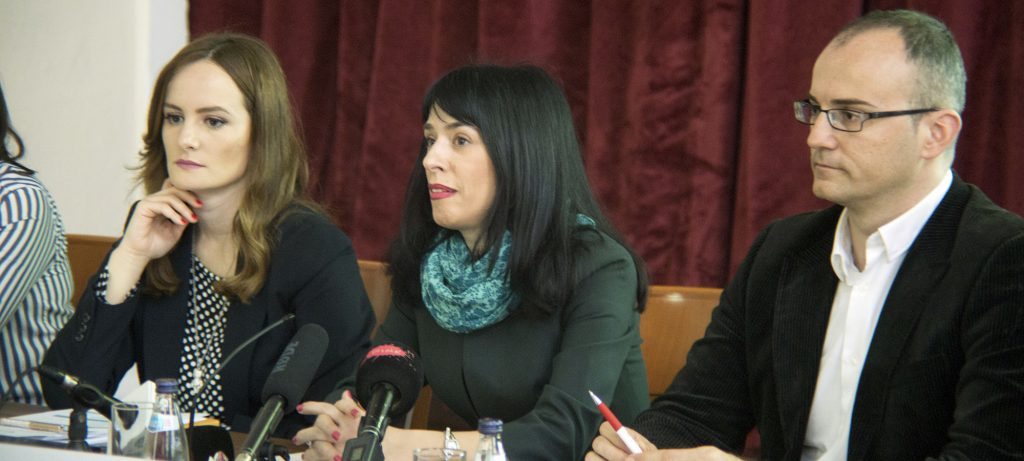Lately, participation of University graduates on Montenegrin labor market has increased, which means that young people should use European Union programs more often in order to improve their knowledge and competences - it was noticed on Centre for Monitoring and Research’s round table.
That non-governmental organization organized round table “Development of policies for support of youth” with decision makers on national level, within the project of Be ready for EU values, which is financed by European Commission within Erasmus plus program.
Deputy General Director of Directorate for high education in Ministry of Education, Mubera Kurpejovic, said that Montenegro is already using significant number of funds and EU programs for youth.
“The aim of Ministry of Education and of all reforms that we are planning to carry out is to have one concurrent sector that will be concurrent when it comes to both education and employment at the same time”, Kurpejovic said.
According to her words, the Ministry wants youth to recognize on time what is missing in education system and to become candidates and apply for more and more mobility programs through that department and other programs and to gain knowledge and competences they need.
Independent counselor for professional orientation in Employment Agency of Montenegro, Alisa Dizdarevic, said that according to data of the Employment Agency, the problem of structural and regional mismatch between supply and demand among the most important challenges.
“When it comes to labor market, the participation of young people is remarkably increased, especially of university graduates. Current state on this day is that there are 51 715 unemployed people, of which there are 3 388 persons with high education, and out of that number there are 994 on a Program of Professional Training”, Dizdarevic said.
She said that one of the main characteristics of unemployment is lack of practical and usable knowledge and competences.
Coordinator of national Erasmus plus office, Vanja Drljevic, said that opportunities that this program offers in the area of education of youth are being used in Montenegro.
“Youth are in the focus of the program Erasmus plus. Through this program, we want young people to become capable of living in modern era, to increase their knowledge and competences, through both formal and informal education”, Drljevic stated.
One of urgent missions of European countries is to, as she emphasized, solve the problem of unemployment of young people.
Drljevic said that this year Erasmus plus marks 30 years since its establishment, stating that more than 9 million users used the program.
General director of Directorate for Youth in the Ministry of Sports, Nenad Koprivica, reminded us that last year the Law on Youth, National strategy and action plan for the implementation of that document for the period 2017-2021 were adopted.
One of the key activities of Directorate for Youth is to open youth clubs, reminding us that currently there are 10 of them in Montenegro.
“Our newest information state that soon we open centers in Bar and Herceg Novi. Recently, in cooperation with the Capital and the UN system in Montenegro, we opened first youth center which opens opportunities for youth to use the premises of the center and all resources that are available, for free”, Koprivica said.
Director of High school Gimnazija “Slobodan Skerovic” , Zoja Bojanic Lalovic, said that everybody in that educational institution is aware of their role, and also that without quality school, well organized school, satisfied students and teachers, “ there is no good implementation of policies of Ministry of Education”.
“Therefore, we strive to actively involve all our students through quality teaching program, and to develop all key competences that are necessary in order to come closer to the most quality schools of European educational system”, Bojanic Lalovic stated.
Executive director of CeMI, Nikoleta Tomovic, said that the project Be ready for EU values is focused on strengthening of cooperation and exchange of experiences between youth in Montenegro and member states of European Union through the promotion of European values.
“The project is mostly focused on improving active participation of youth in social, economic and political processes and development of Montenegro and on improvement of quality of youth work and informal education through encouraging cooperation and exchange with EU countries”, Tomovic explained.
The project is supported by European Commission within the program Erasmus plus, and partners are University of Donja Gorica, Art Communications from Podgorica, Center for international studies from Croatia and Center for European Perspectives from Slovenia.
